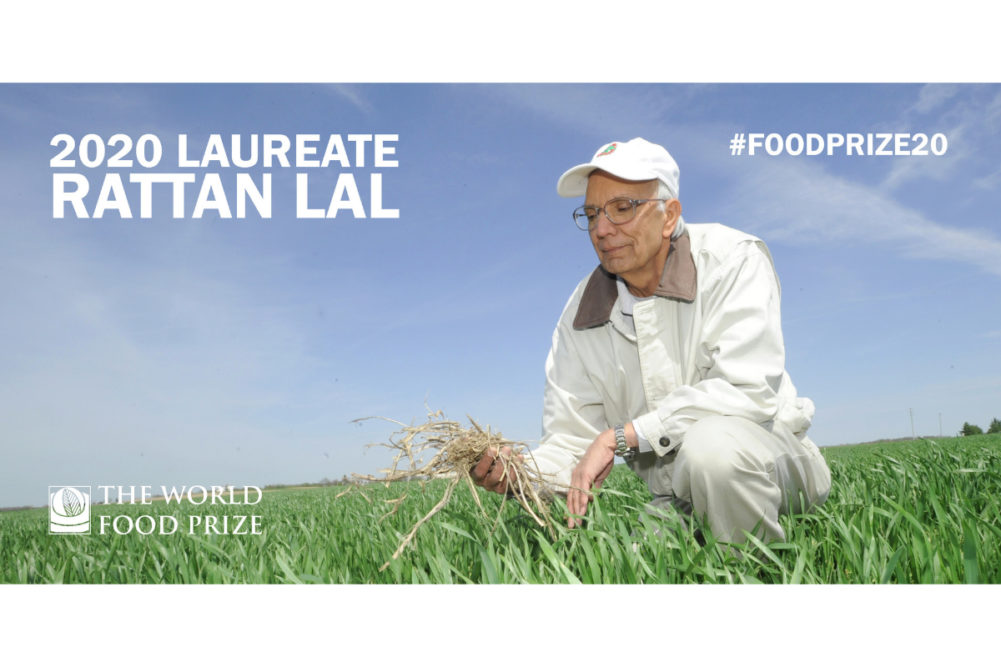DES MOINES, IOWA, US — Rattan Lal, PhD, was named this year’s World Food Prize Laureate for developing and mainstreaming a soil-centric approach to increasing food production that conserves natural resources and mitigates climate change. Lal is a professor of soil science and founding director of the Carbon Management and Sequestration Center at The Ohio State University.
Lal’s research has demonstrated how healthy soils enable higher crop yields while requiring less land, agrochemicals, tillage, water and energy. His models indicate that restoring soil health can lead to multiple benefits by the year 2100, including more than doubling the global annual grain yield to feed the growing world population while decreasing the land area under grain cultivation by 30% and decreasing total fertilizer use by half.
“Dr. Lal is a trailblazer in soil science with a prodigious passion for research that improves soil health, enhances agricultural production, improves the nutritional quality of food, restores the environment and mitigates climate change,” said Barbara Stinson, president of the World Food Prize Foundation. “His decades of work to address all of these elements fully warrants his recognition as the 50th World Food Prize Laureate.”
The World Food Prize is considered one of the most prominent global awards for individuals whose breakthrough achievements alleviate hunger and promote global food security. Lal received a $250,000 prize.
“The unbound joy and excitement of receiving the 2020 World Food Prize reminds me about the gratitude, privilege and honor of working for farmers from around the world,” Lal said. “Yet, the urgent task of feeding humanity is not fulfilled until each and every person has access to an adequate amount of nutritious food grown on a healthy soil and in a clean environment.”
Lal grew up as a refugee on a farm in India. He began his research career at the International Institute of Tropical Agriculture in Nigeria, developing soil health restoration projects across Asia, Africa and Latin America. He explored and transformed techniques such as no-tillage, cover cropping, mulching and agroforestry that protected the soil from the elements, conserved water and returned nutrients, carbon and organic matter to the soil. The work improved the long-term sustainability of agroecosystems and minimized the risks to farmers of droughts, floods and other effects of a changing climate.
Lal in 1987 joined The Ohio State University, his alma mater. His research there showed how atmospheric carbon can be sequestered in soils. As a result, soils now are not only the foundation for increasing the quality and quantity of food and preserving natural ecosystems, but part of mitigating climate change, as well. Three separate United Nations Climate Change Conferences adopted his strategy of restoring soil health as a means to sequestering carbon.
Lal in 2007 received a Nobel Peace Prize Certificate for his contributions to the Intergovernmental Panel on Climate Change (IPCC) reports when the IPCC was named co-recipient of the Nobel Prize.
“Here at USDA our motto is ‘to do right and feed everyone,’” said US Secretary of Agriculture Sonny Perdue. “The scientific innovations, like those developed by Dr. Lal, embody this motto in the work that he and we are doing. The agricultural practices Lal developed and advocated for are now at the heart of efforts to improve agricultural systems.”






